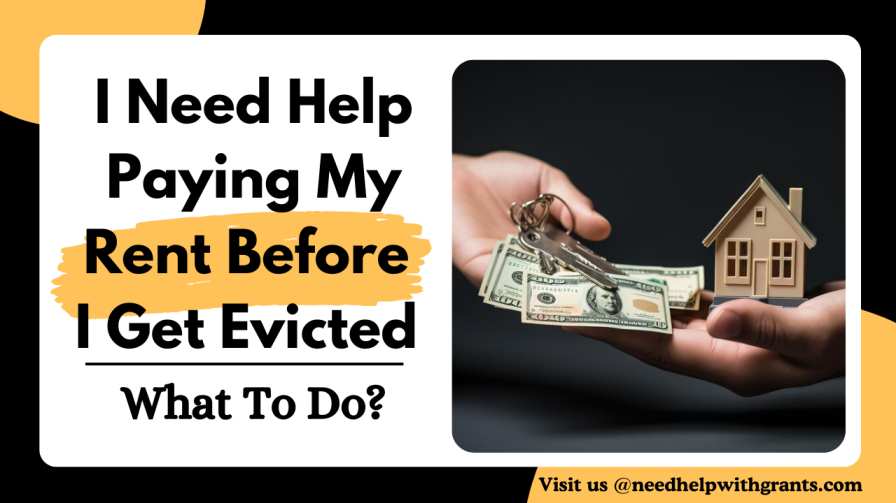I know very well how stressful it can be to face eviction due to rent arrears. A few years ago I also faced the same when I was facing a financial crisis. At that time I prepared my mind and took some strong strategies, I also found a few places where I may get rent assistance or emergency housing.
Today in this blog post I will discuss my experience so that you can get out of this situation. I will mention some programs and places where you may get emergency rent assistance. Let’s get started!
Key Points:
- Ask for immediate assistance from local government agencies or non-profit organizations specializing in rent relief programs.
- Communicate openly with your landlord about your financial difficulties and explore options for temporary rent reductions or payment plans.
- Research community resources such as food banks or charitable organizations that may offer financial support for housing emergencies.
- Apply for rent assistance accurately and you will get rent assistance now.
What Should I Do If I Need Help Paying My Rent Before I Get Evicted?
It is a crucial situation when you need help paying your rent before you get evicted. Here I have described a few ways that you can follow in this crucial situation. Follow these steps:
- Do not Panic: Stay calm and focused. Panicking can make it harder to find a solution.
- Contact Your Local Social Services: Local social services can guide you to available resources and programs that can provide financial assistance for rent.
- Reach Out to Family and Friends: Explain your situation to close family and friends. They may be able to offer temporary financial support or other forms of assistance.
- Consult Legal Aid: If your landlord is threatening eviction, consider seeking legal advice. You may qualify for free legal aid based on your income. Contact your local bar association or legal aid organization for assistance.
- Talk to Your Landlord: Open communication with your landlord is crucial. Explain your situation and inquire about payment plans or other arrangements.
- Review Your Lease and Rights: Understand the terms of your lease and tenant rights. Depending on your state, reasons for eviction may include lease violations, nonpayment of rent, or illegal activity. You may have additional rights, such as debt collection rights or the right to remain in your home as a survivor of domestic violence.
Remember that you are not alone and that organizations and people are willing to help. Please take proactive steps to address your situation and I hope you find the support you need.
My Personal Opinion
Steps to Take Immediately If You Need Help With Paying Rent Before Evicted
I understand how stressful it can be to face eviction due to rent arrears. Here are some steps you can take to seek assistance:
1. Emergency Rental Assistance Programs
Many state and local governments have emergency resident assistance programs in place to assist residents facing eviction. Check your local government website for information. The U.S. The Treasury Department offers Emergency Rental Assistance (ERA) programs. These programs provide financial assistance to qualified tenants for rent, arrears, utilities, and other housing-related expenses. Participating governments have provided more than $46 billion to support housing stability during the pandemic. You can find more information about the Interagency Housing Portal, which is maintained by the Consumer Financial Protection Bureau (CFPB).
2. Non-Profit Organizations
Several churches and non-profits offer emergency financial assistance:
Catholic Charities
A national network of social service organizations affiliated with the Catholic Church, dedicated to helping individuals and families facing financial difficulties, including difficulties paying rent. Check the website for local office contact information or call (703) 549-1390.
The Salvation Army
The Salvation Army offers emergency services, including rental assistance, to help families keep a roof over their heads during difficult times. They provide resources to reduce the financial and emotional burdens associated with housing utilities. Visit the website to find the location nearest you or call 1-800-SAL-ARMY (1-800-725-2769).
Society of Saint Vincent de Paul
The Society of St Vincent de Paul is a charity that helps with rent payments and other basic needs for vulnerable individuals and families. You must provide the relevant documentation (ID, income, expenses) and often require a home visit or an interview. Check the website for contact information for local offices or call (314) 576-3993.
Episcopal Church
Episcopal churches provide various forms of assistance, including rental support, to those in need. Through its various ministries and community outreach programs, it provides emergency financial assistance including rent and utility assistance. Visit the website to find a local parish in need of help or call (800) 334-7626.
The United Way
United Way provides support through its 2-1-1 service, which connects people with local resources for assistance with rent and other needs. Eligibility may vary by program and local partner agencies but generally requires proof of need and financial documentation. Visit the website for regional contact information or dial 2-1-1 for local assistance.
Volunteers of America
A national nonprofit organization that provides housing and support services, including housing assistance and emergency financial assistance, to support individuals and families in crisis. Check the website for regional office information or call (703) 341-5000.
Lutheran social services
Lutheran Social Services provides emergency assistance, including rental and utility assistance, to help families and individuals maintain stable housing. For rental assistance from Lutheran Social Service, you can easily visit their website or call them at (877) 577-7267.
YWCA
The YWCA offers emergency financial assistance, including rental support, through its various programs aimed at empowering women and families. To be eligible for their rental assistance programs, you must demonstrate financial need and provide necessary documentation (ID, income verification, lease agreement). For more information, you can call them at (202) 467-0801 or visit their website (https://www.ywca.org/).
3. Government Assistance
HUD Rental Assistance: The U.S. Department of Housing and Urban Development offers several programs to help with housing.
Section 8 Housing Choice Voucher Program: Provides rental assistance to low-income families.
4. Local Community Action Agencies
Community Action Agencies (CAAs) provide a range of support services, including emergency financial assistance. These companies can help with rent, utility bills, and other needs. Find a CAA near you by searching online or contacting local government offices. They generally have funds allocated for emergencies and can direct additional resources.
5. Faith-Based Organizations
Many churches and religious organizations have funds to help community members in need. Many religious organizations and churches have programs designed to help individuals and families in financial need. These organizations can provide direct financial assistance, food, clothing, and other assistance. Call local churches, mosques, and other religious places and ask about available support programs.
6. Crowdfunding
Crowdfunding platforms like GoFundMe can be a way to raise money quickly by sharing your story with a wider audience. Create a compelling campaign explaining your situation and share it through social media, email, and community groups. Be transparent about your needs and how the funds will be used to enlist the support of friends, family, and even strangers who may be willing to help.
7. Negotiate with Your Landlord
Open communication with your landlord can sometimes lead to a temporary solution. Explain your situation and ask if they can offer you a payment plan, deferment, or reduced rent for a short period. Landlords may prefer to work with you rather than go through the eviction process, which can also be costly and time-consuming for them.
8. Temporary Employment
Taking a temporary or gig job can provide you with immediate income to help pay the mortgage. Look for opportunities in areas that typically hire quickly, such as retail, food service, delivery, or freelancing. Websites like Indeed, Craigslist, and unique gig platforms like TaskRabbit or Uber can be useful for finding temporary work.
9. Loans and Credit
While not ideal, consider personal loans, payday loans, or credit cards as a last resort.
How To Apply For Rent Assistance Programs?
Here is the application process step by step described. Follow the steps to apply for the rent assistance program.
- Research and Preparation: Before applying for rental assistance, it is essential to research available programs and understand their eligibility requirements and application processes.
- Checking Eligibility Requirements: Review each program’s specific eligibility criteria to determine if you qualify based on factors such as income, household size, and state of residence.
- Gathering necessary documentation: Gather documents such as proof of income, identification, lease agreements, and any other paperwork required by the program.
- Application Process: Depending on the program, applications may be submitted online through the program website or in person at designated offices or agencies.
- Monitoring and Waiting Period: After you submit your application, it is important to monitor your status and be prepared for a waiting period while your eligibility is reviewed.
Eligibility and Documentation Needs To Get Emergency Rent Assistance
To be eligible for emergency rent assistance, you typically need to provide certain documentation. Requirements can vary by location and program, but generally, you might need:
- Proof of Income: Pay stubs, bank statements, or a letter from your employer.
- Lease Agreement or Rent Statement: Showing your current rent amount and any past due amounts.
- Identification: Such as a driver’s license or passport.
- Proof of Hardship: Documentation showing why you are unable to pay rent, such as a layoff notice, medical bills, or other unexpected expenses.
- Proof of Residence: Utility bills or other documents that show your current address.
- Bank Account Information: Some programs may require this for direct deposit of assistance funds.
Important Note: It’s necessary to check with your local government or the organization offering the assistance to get the specific requirements and application process.
FAQs
How can I get help paying my rent?
You can seek help from government agencies, local charities, nonprofit organizations, or community outreach programs that offer rental assistance.
Where can I find rental assistance programs in my area?
Contact your local housing authority, or community services department, or search online for organizations that provide rental assistance in your city or county.
What should I do if I already received an eviction notice?
Act quickly. Contact local legal aid services or tenant advocacy groups for advice about your rights and options. You may also qualify for emergency rental assistance programs designed specifically for impending evictions.
How long does it take to receive rental assistance once I apply?
Processing times may vary. It is best to apply as soon as possible and follow up with the agency or organization handling your application to expedite the process if necessary.
What happens if I can’t find rental assistance and face eviction?
Seek legal advice immediately. Last-minute remedies or legal protections may be available to delay or avoid eviction proceedings.



